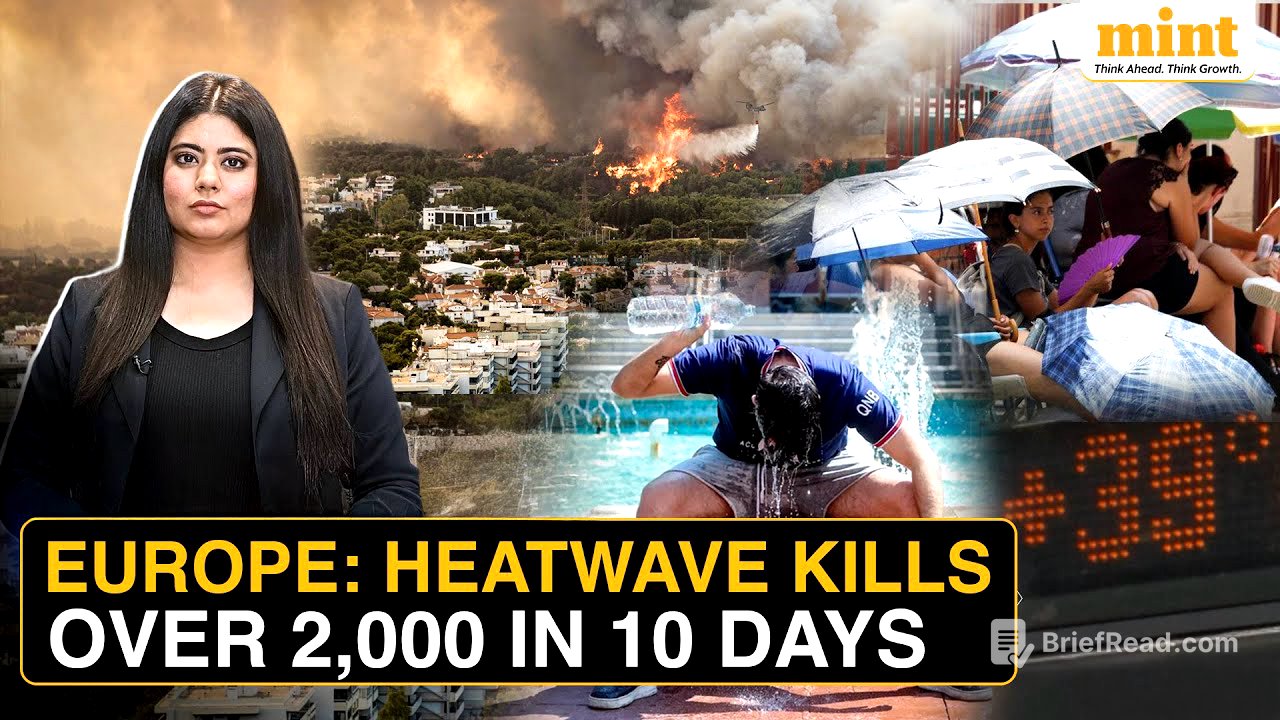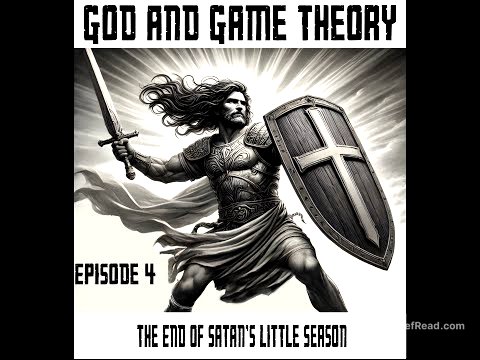TLDR;
The video discusses the undeniable reality and impacts of climate change, particularly focusing on the increasing frequency, intensity, and duration of heat waves. It highlights the human cost, ecological consequences, and economic impacts of prolonged heat, emphasizing that climate change is not just an environmental issue but a multifaceted crisis affecting various aspects of life globally. The video also touches on the urban heat island effect and potential mitigation strategies.
- Climate change is causing more frequent, intense, and longer heat waves.
- These heat waves lead to significant health impacts, including heatstroke and increased mortality.
- The ecological consequences include disruptions to plant and animal life cycles and increased wildfires.
- The economic impacts are substantial, with projected GDP losses due to reduced productivity.
- Urban heat island effect exacerbates the problem, especially in cities with limited green space.
Introduction [0:02]
The video opens by addressing the denial of climate change, contrasting it with the observable effects such as rising temperatures, melting ice, and extreme weather events. It emphasizes that these are not isolated incidents but warnings of the consequences of ignoring scientific evidence. The introduction highlights the deadly impact of recent heat waves, citing the European heat wave where an estimated 2,300 people died from heat-related causes, with research linking two-thirds of these deaths directly to climate change.
The Big Picture: Longer Summers [1:24]
The video explains that climate change is not only making summers hotter but also longer. Matthew Kapuchi, an author and meteorologist, uses an analogy of a rising basketball court to illustrate how background warming increases the frequency and intensity of heat events. He notes that while some regions like Russia, Greenland, and Canada might initially benefit from warmer conditions, middle latitudes are experiencing more severe weather, flooding, and hurricane activity. Kapuchi concludes that climate change is not inherently bad, but our infrastructure is not prepared for the changing conditions.
Health Impacts of Prolonged Heat [3:23]
The video details the health risks associated with longer summers and prolonged heat exposure. It explains that prolonged heat can overwhelm the body's cooling system, leading to heat exhaustion, heat stroke, and organ failure. Dehydration, increased heart strain, and exacerbated respiratory issues are also discussed. The segment emphasizes that these health impacts are not limited to Europe but are a global crisis, with a study showing that climate change has doubled the number of extreme heat days in many countries.
Expert Opinion: Dr. Lawrence on Urban Heat Island Effect [4:51]
Dr. Lawrence, the chief science advisor of Climate Resilience for All, discusses the different types of climate change, emphasizing the significance of the urban heat island effect. He explains that densely populated urban areas with widespread air conditioning and limited green space exacerbate heat waves. Dr. Lawrence suggests that cities need better intervention plans and heat warning systems. He also points out that more people die from heat in temperate areas with variable climates than in the tropics due to sudden, excessively hot events. Simple measures like greening cities and using reflective materials can help mitigate the impacts of heat waves.
Worst Affected Regions and Ecosystem Crisis [7:36]
The video identifies specific European countries, including Spain, France, Italy, Greece, and Portugal, as being severely affected by heat waves. It also highlights the broader ecosystem crisis, noting that high water temperatures are killing aquatic life, such as the death of four tons of reservoir fish in the Czech Republic. Extended summers disrupt plant flowering, animal migrations, and breeding cycles, leading to food web chaos and agricultural losses. The segment also mentions the increased frequency of wildfires and the spread of disease-carrying insects.
Economic Impacts and Conclusion [9:06]
The video concludes by addressing the economic impacts of heat waves, projecting a 0.5 percentage point reduction in Europe's GDP growth in 2025, with Spain facing losses as high as 1.4 points. It equates this to losing half a day of work for every day above 32°C. The video ends with a call to action, urging viewers to recognize the reality of climate change and take steps to cool things down before the planet becomes uninhabitable.









